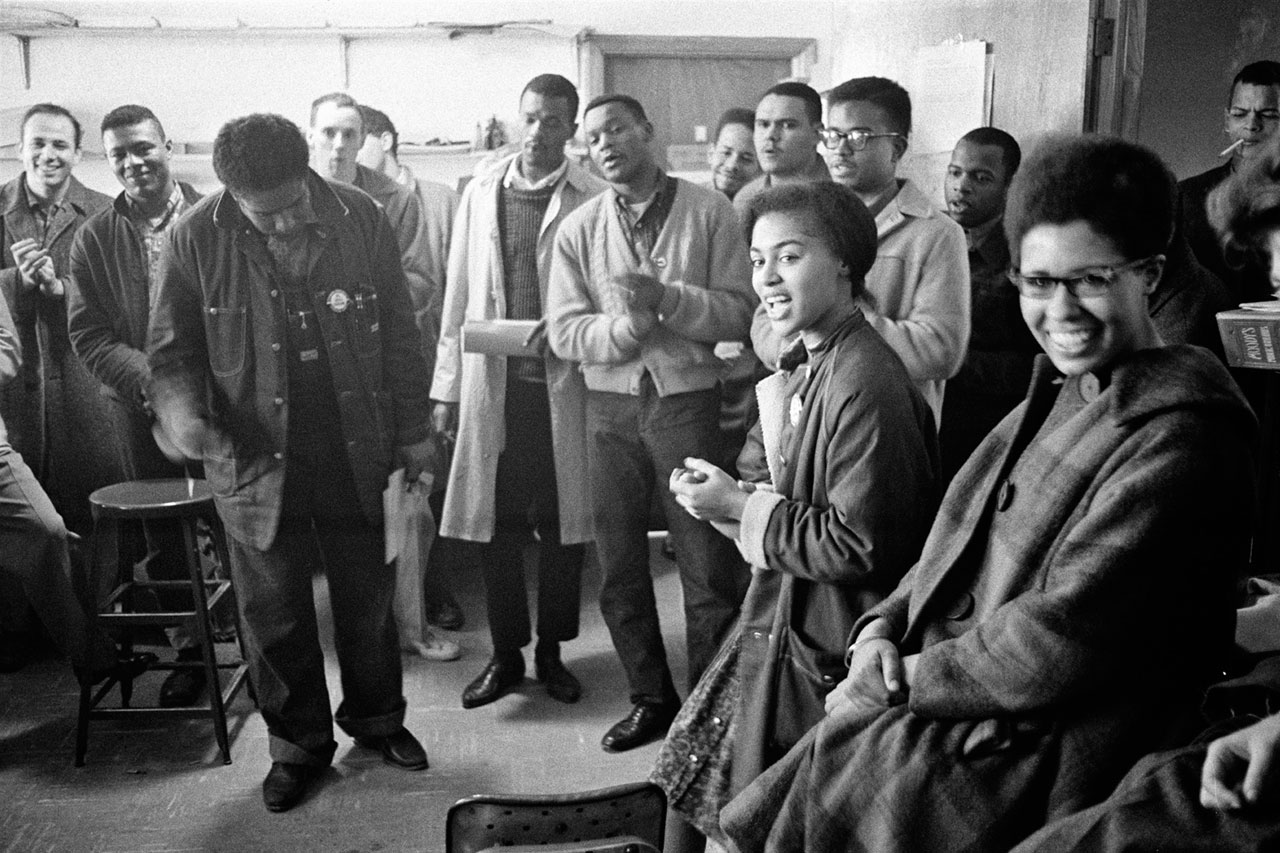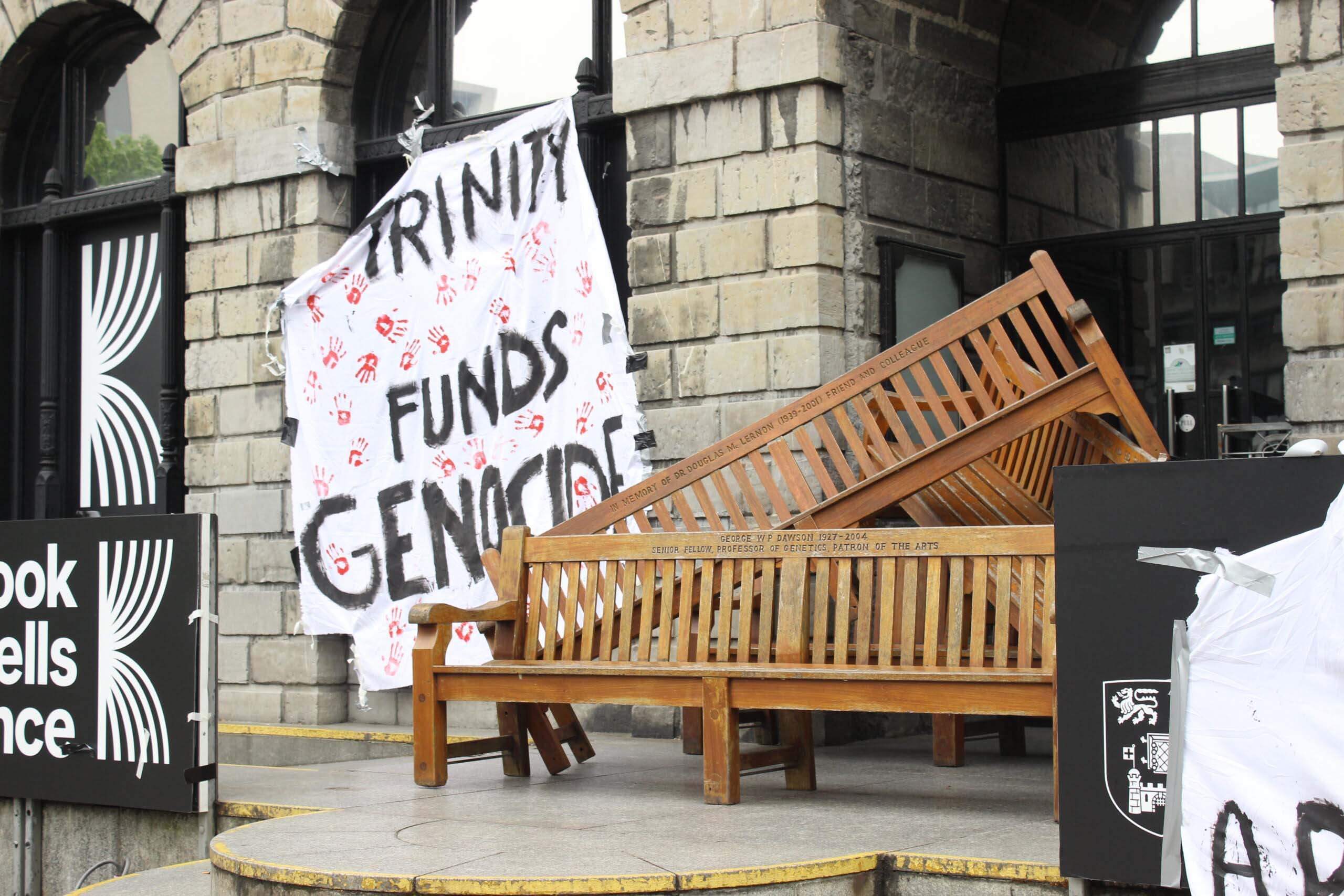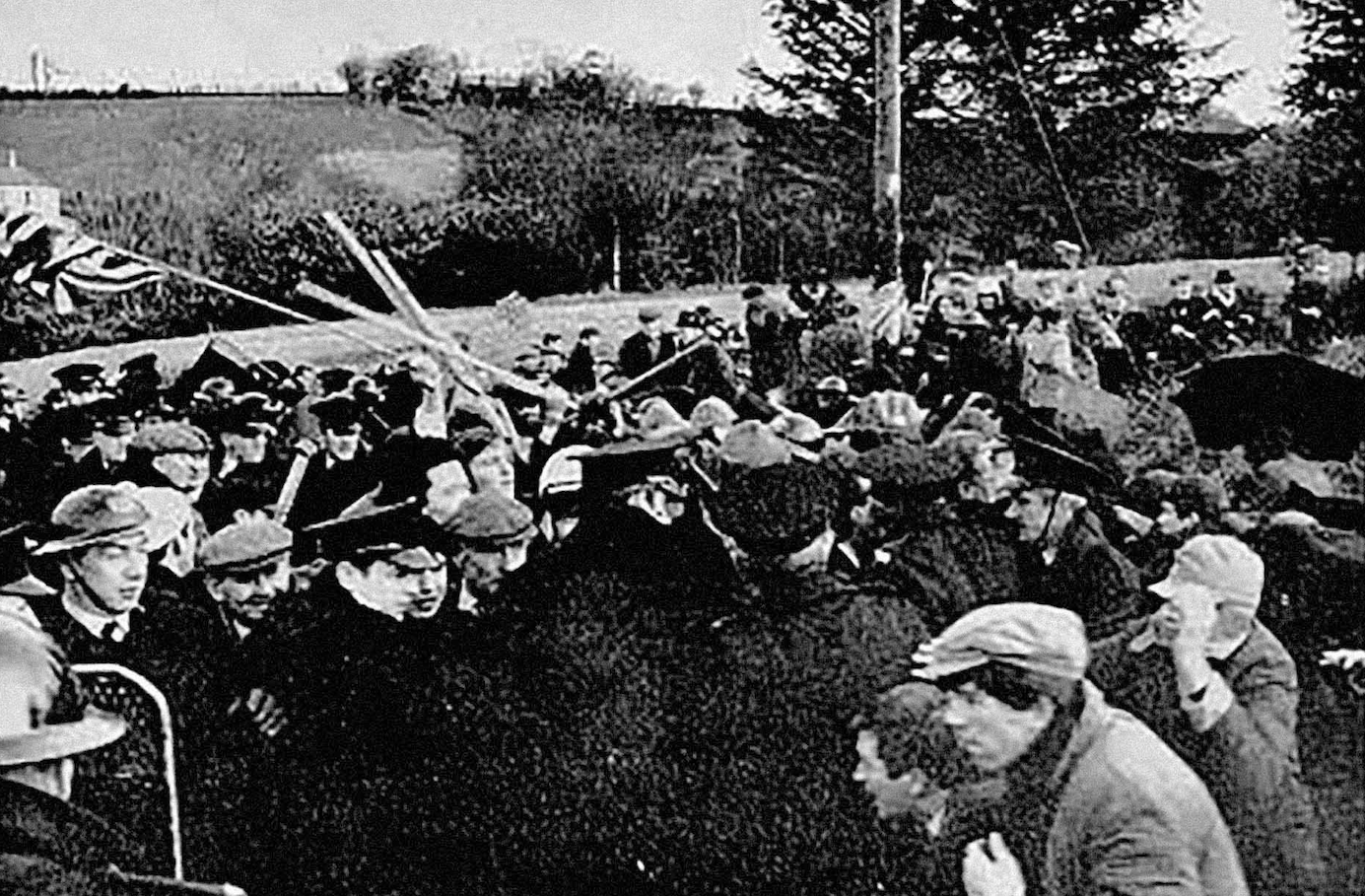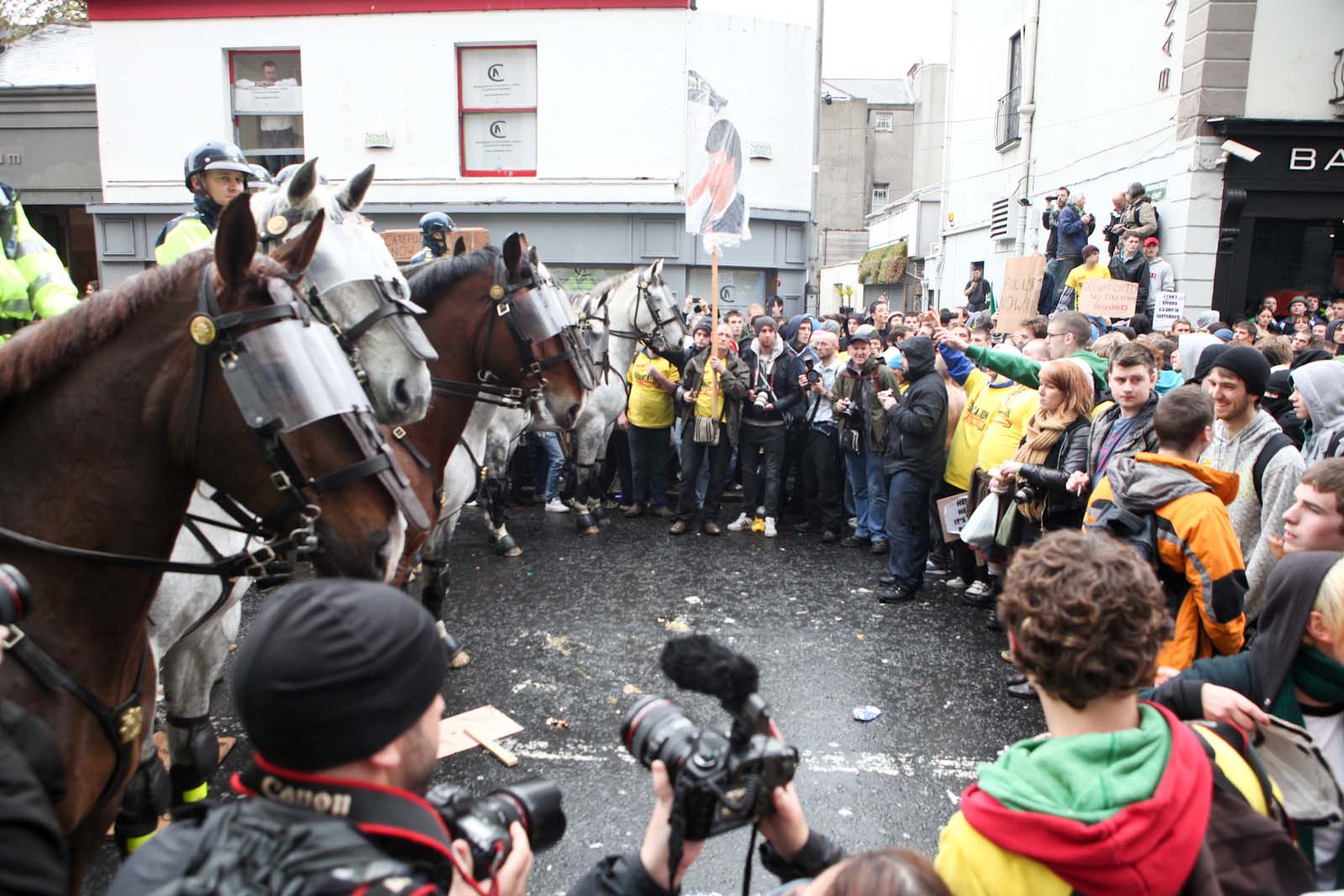- Lifestyle & Sports
- 09 Oct 24
Student activism: "Don’t be afraid to step away from your studies, and speak up for what you believe in"

Anna Sparling and Heather O’Sullivan report on how the pro-Palestinian encampments galvanised a generation of Irish student activists.
In response to the brutal ongoing Israeli assault on Gaza, student protests broke out in colleges across the nation. It proved to be a real show of strength, reminding us of the energy, vigour, and pure grit that students can bring to issues that really matter to them.
The reality is that student activism has frequently had a huge impact globally – not just on college campuses, but on society as a whole, shaping social movements and influencing politics. There have been many landmark movements, with students of different races, genders and sexualities coming together in common cause.
Sometimes, students have placed themselves in real, immediate danger. In 1940s Germany, as fascism was on the rise, a group of students at the University of Munich joined together to oppose the Nazi regime with non-violent resistance. Members of what became known as the White Rose Society were subsequently imprisoned and executed.
From the 1950s through to the ’70s, American students became heavily involved in the civil rights movement and protested powerfully for women’s rights. They were also central to the anti-Vietnam War campaign.

Student Nonviolent Coordinating Committee, 1963. Photo: Danny Lyon
Come the ’80s, and students were at the heart of protests against apartheid in South Africa, including the boycotting of South African goods. The ’90s saw them highlighting colleges’ links with ethically dubious corporations and brands. More recently, students have taken a stand on issues like Black Lives Matter, climate change, gun laws, abortion and Palestine.
It was the latter issue which saw protests in Trinity College, UCD and UCC. Encampments were set up, disrupting the normal college routines, to the extent that they had to be taken seriously by the authorities. All three protests ended in victory for the students, with each college pledging to cut all academic ties with Israel; to disclose all ties, academic and financial, with Israeli institutions; and committing to divest from any investments in Israel.
Cole Spradlin helped to organise the encampment in UCC as a member of the BDS group.
“The experience you gain as an activist when you’re young is incredibly valuable to the entire rest of your life,” he observes. “It’s not the kind of work that you need a degree for. It’s people your age coming together across a broad spectrum of political, social and economic backgrounds, all with the same purpose.
“Which is really good for learning how to find your kind of people. The encampment had a lot of people come by and say, ‘I can’t believe that you kids are doing this, it’s so amazing’. There’s something about students and young people leading the way that really rallies older people.”
What about students who are afraid to get involved? Cole acknowledges that there’s risks involved.
“There are certain encampments that are not safe, there are social situations that are not safe, but we do protect each other,” he says. “The safety comes from numbers. The more people you have in an encampment, the less likely you are to face an academic sanction, an arrest or any sort of interference.”
Looking ahead, Cole argues that the upsurge in political activity represents “a serious change in momentum”.
“We are bringing in students,” he recounts, “and trying to push them towards more activism, and more direct involvement of a kind that cannot be ignored. We’ve shown a lot of students that these are not apolitical campuses. These are centres for learning and change.”
Ex-MEP Clare Daly – twice elected as President of DCU Student’s Union – likened the pro-Palestinian encampment in Trinity College to the Vietnam protests of the ‘70s, and told students that their actions will “change history”.
“What you have done is what the political and business leaders, and the so-called adults in Ireland and other societies, should be doing,” Daly told the students at the encampment. “They haven’t got half the brass neck or balls that you have, and it is so desperately needed.”
The importance of “brass neck” and “balls” in student activism cannot be overstated. Indeed, those same qualities are often the backbone of social movements. So don’t be afraid to step away from your college studies, and speak up for what you believe in.

Niamh Browne looks at some of the most impactful Irish student protests over the years:
Galway Students’ Union (1964)
Sixty years years ago, future President and Hot Press columnist Michael D. Higgins led 600 students to protest “poor relations generally between the university and the local community.” Accommodation was a key issue, as many hotels refused to take visiting students, and land-ladies discriminated against students in summer. Some things never change.
Queen’s University Belfast and the People’s Democracy (1968)
Though technically not a student union, the People’s Democracy was very much student-led and a key player in the civil rights movement in the North. Founded by 10 Queens students, including Bernadette Devlin, the People's Democracy had five primary aims. Among them were one person, one vote; an end to the gerrymandering of electoral boundaries; and the fair allocation of jobs and housing.

UCD’s Contraceptive Distribution Machine (1979)
The first contraceptive vending machine in the Republic was installed in UCD in January ’79 by the Students Union. With a pack of four condoms costing 50p, it proved popular, selling 160 condoms a day. At the time, contraceptives were illegal in Ireland under the Criminal Law Amendment Act 1935 – but the Director of Public Prosecutions decided not to take legal action against the union, because of concerns about the publicity a court case would entail.
National Protest Against Registration Fees (2010)
Between 25,000 and 40,000 student demonstrators took to the streets of Dublin in 2010, in what was described as “the largest student protest for a generation.” The massive protest took place in opposition to a proposed increase in university registration fees; further cuts to the student maintenance grant; and the increasing graduate unemployment and emigration levels caused by the recession.

Read the full Hot Press Student Special Part 2 in our new issue – out now:
RELATED

- Lifestyle & Sports
- 14 Oct 25
Backlash as Irish Olympian Shane Ryan joins the controversial Enhanced Games

- Lifestyle & Sports
- 11 Oct 25
Special Report: Bohemian FC Women's Squad - Making Giant Strides

- Lifestyle & Sports
- 10 Oct 25
Hot Press College Roadshow 2025 (Photos)
RELATED

- Lifestyle & Sports
- 09 Oct 25
Pellador announce Michael D. Higgins inspired football jersey in collaboration with Claddagh Records

- Lifestyle & Sports
- 07 Oct 25
Report: Why We Must Not Fail On Climate Targets panel at Electric Picnic with Re-Turn and more

- Lifestyle & Sports
- 01 Oct 25
Irish football community backs motion to suspend Israel Football Association from UEFA

- Lifestyle & Sports
- 26 Sep 25
Minding Creative Minds to hold September meet and greet and October events

- Lifestyle & Sports
- 23 Sep 25


